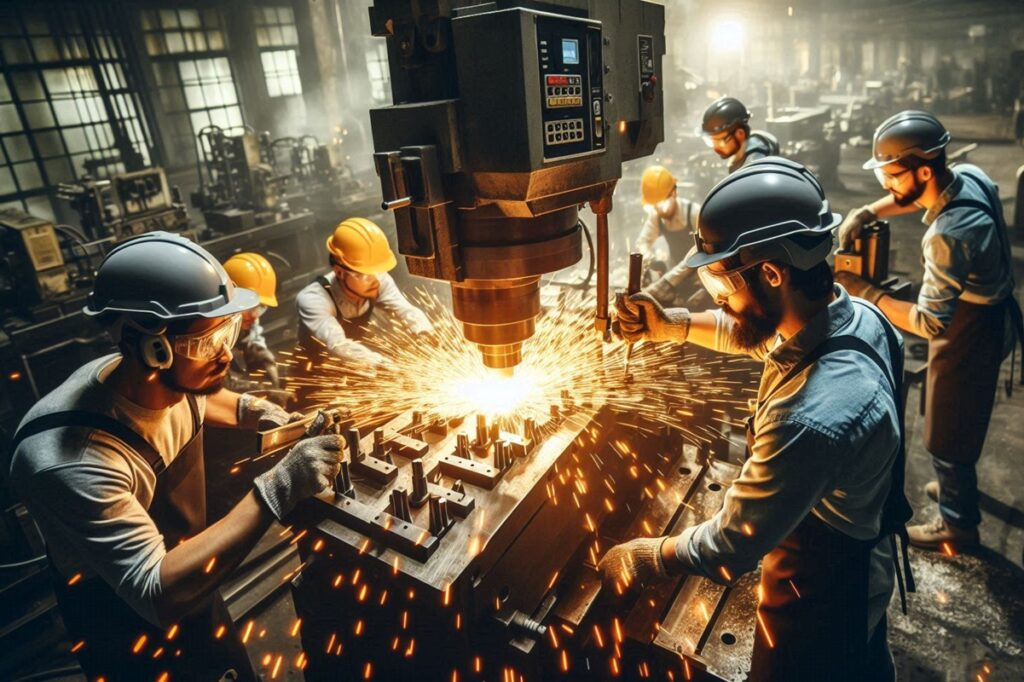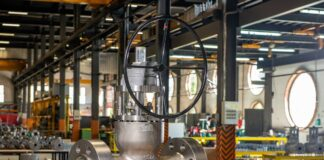Forging is a quite complex manufacturing process of shaping metals by compressive forces. It is most preferred in the industries of automobile, aerospace, defense, construction, and oil & gas; the components require to possess high strength, durability, and accuracy.
Moreover, the quality of the products forged would be of utmost importance since these parts might be critical in the safety aspect and the performance of the equipment concerned.
Indian forgings manufacturing companies have a standardized quality assurance program that has been put in place to ensure it meets the high standards required by its clients-whether domestic or international.
The article shares the behind-the-scenes with readers on how Indian forging companies go about their job in quest of quality assurance.
7 Ways Forging Manufacturers Ensure Quality Assurance
Indian forging manufacturers pay much attention to the quality as all the facilities are equipped and use precise processes, and products are rigorously tested.

#1. Adherence to International Standards and Certifications
Forging manufacturers India adhere to international quality benchmarks widely accepted across the global industries. Such certificates, like ISO 9001, ensure the implementation of an effective Quality Management System that impels continuous improvement in operations and product quality.
IATF 16949 ensures conformity to extremely stringent quality and safety conditions the industry demands, whereas AS 9100 ensures aerospace manufacturers adhere to the high degree of precision and safety that the application demands for aerospace applications.
API Certification ensures adherence to industry-specific quality standards of the oil and gas industry. Collectively, these globally acclaimed certifications assure the customers that Indian manufacturers deliver the forged products on par with international quality standards.
Also Read: The Ultimate Step-by-Step Guide to Forging Metal Components
#2. Comprehensive Raw Material Testing
Quality raw materials are the backbone of quality forged products. Indian forging manufacturers carefully ensure that their raw material adheres to strict standards and specifications for producing powerful, durable, and long-lasting parts.
Quality tests are done on raw materials before the forging process, which verify composition analysis of chemical composition to check whether it consists of the required alloy mix to accomplish desired mechanical properties.
The mechanical testing includes tensile strength tests along with checks on hardness and impact resistance to establish that the material can carry forging stresses.
Further, non-destructive testing (NDT) methods, among which are ultrasonic, radiographic, and magnetic particle testing, are carried out to check for internal defects so that materials of only the very highest quality are selected.
Such through tests conducted by Indian forging manufacturers ensure that defects in the final product are averted and raw materials meet the stringent requirements of quality for their intended applications.
#3. Process Control and Monitoring
Quality control in forging extends beyond the raw material; it passes through every step across the production process. Indian forging manufacturers use advanced process control and monitoring systems so as to maintain and achieve consistency throughout the production process. Important aspects of process control include:
- Die and Tool Design: The precision of the dies mainly determines the quality of the overall forging product. Indian forging companies use CAD and CAM tools for high-precision dies to be made through the fabrication process, thereby minimizing probable for forging defects.
- Temperature Control: In the forging process, it is required that the metal be brought to a temperature range where it would become soft and malleable. The proper temperature ensures the right mechanical properties are achieved. Indian forging companies use high-temperature sensors and advanced processes of heat treatment to ensure uniform heating and cooling of metals devoid of any occurrence of internal stresses or inconsistencies.
- Automated Production Lines: Most Indian forging producers are using automatic lines of production with Robotic systems and automated presses. Automation minimizes the occurrence of human errors and hence goes for higher quality in production, especially in high-volume runs.
By having stiff controls on the process, the Indian forging manufacturers ensure that the entire manufacturing process is very efficient with minimal variability and defects in the final product.
#4. Inspection and Testing of Forged Components
Comprehensive inspections and testing of forged parts in terms of quality and dependability, companies engaged in forging often inspect such parts at different stages of production for ensuring the component part meets accurate customer dimensions and tolerances.
The use of precision instruments is common in dimensional inspections to determine whether the component parts are within the tolerances set by the customer. The machinability properties of the forged parts are analysed in the mechanical property testing, which includes hardness, tensile strength, and impact resistance.
Non-destructive testing, like ultrasonic testing, radiography, and penetrant inspection, is followed to ensure the fundamental requirement, that being the examination of cracks or porosity on the surface or under it that may adversely affect the integrity of the component.
In addition, sample parts can be subjected to destructive testing-in some cases, including fatigue and fracture toughness tests-to simulate conditions that arise in service. These high checks and tests guarantee only the best components meet the supply requirements, thereby enhancing the reliability and durability of forged products.
Related: How to Optimize Forging Machining Processes for Efficient Manufacturing
#5. Continuous Improvement and Feedback Mechanisms
Indian forging companies are focused on continuous improvement in process in addition to strict quality control. The production process also receives regular feedback from the customers and end users.
By ensuring integration of the feedback with quality management systems, manufacturers of forges can identify where the problem is as well as how to correct it before it might recur again. Additionally, the use of real-time analytics of data helps in the monitoring of their performance metrics as well as deviations from quality standards.
At the same time, the Indian forging manufacturers provide a focus on continuous improvement, allowing them not only to maintain levels of quality but also to strive for excellence in everything they do.
Related: Understanding different Challenges Faced by Wires and Cables Manufacturers
#6. Emphasis on Skilled Workforce and Training
The expertise of the workforce is an important part of quality assurance in forging. Indian forging manufacturers make a huge investment in training and developing their manpower.
Accordingly, they are capable of making sure that the skills and expertise required to maintain quality standards throughout the production process are obtained from the workplace.
In the forging manufacturing process, regular training programs are given to machine operators, technicians, and quality control persons with the latest technologies and best practices.
Furthermore, collaboration with technical institutes and industry bodies provides opportunities for skill development so that any innovative trend in the industry could be updated by the workforce.
Thus, this strong stress on a highly skilled and knowledgeable workforce will give Indian forging manufacturers the edge to produce consistent quality goods with improvements in the efficiency of the production process.
Related: The Importance of Raw Material Selection in Forging foundry
#7. Supply Chain and Vendor Management
Assurance in quality is also extended to the supply chain in forging manufacturing. The Indian companies of forgings are involved with their suppliers so that the quality standards are met by these raw materials, tools, and equipment sourced by them.
In order to assure that the material or product is always consistent in quality, several forging manufacturers have rigid qualification processes for their vendors; they also audit them regularly to assure the result.
The Indian forging manufacturer can work toward ensuring the purity of raw material by maintaining sound relations with reliable suppliers and tight monitoring over their supply chain.
Related: Top 10 Best Gate Valve Manufacturers in India
Conclusion
India’s forging industry has gained a name for high-quality output for both the domestic and international markets. Indian forging manufacturers through strict adherence to global standards, strict testing and inspection processes, the highest manufacturing technologies, and highly skilful workforce ensure that quality becomes an intrinsic part of every stage of production.
The Indian forging industry, with its commitment toward continuous improvement, Eco policies, and cutting-edge tooling, will stay competitive in the international market and face the growing market demand for high-strength, strong forged components.
Quality assurance will always be the core of the industry’s success, as Indian forging manufacturers offer the safest, most efficient and reliable products available.
FAQs about How Forging Manufacturers Ensure Quality Assurance
What is quality assurance in forging?
Quality assurance in forging refers to systematic processes like inspections, testing, and compliance checks that ensure forged components meet required standards and performance expectations.
Why is quality assurance important for forging manufacturers?
Strong quality assurance prevents defects, improves reliability, ensures safety, and maintains consistency across forged products used in demanding industries.
What testing methods are used in forging quality control?
Manufacturers typically use hardness testing, tensile testing, ultrasonic testing, magnetic particle inspection, and dimensional accuracy checks.
How do forging companies ensure material quality?
They verify raw material composition, source certified alloys, conduct chemical analysis, and monitor heat treatment processes to maintain material strength.
What certifications are required for forging manufacturers?
Common certifications include ISO 9001, IATF 16949, AS9100, and other industry-specific quality management standards depending on the application.
How does technology improve quality assurance in forging?
Modern forging units use automated inspection systems, CNC machining accuracy, digital monitoring, and AI-based predictive maintenance to minimize errors.
What industries rely on high-quality forged components?
Automotive, aerospace, oil & gas, construction, railway, heavy machinery, and defense industries depend heavily on precision-forged parts.









